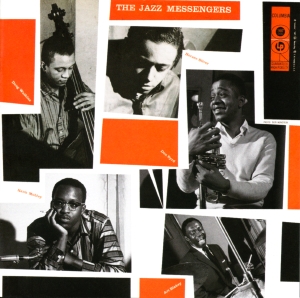 Image via Wikipedia If you're looking for tips on how to memorize music, then take a look at my latest article:
Image via Wikipedia If you're looking for tips on how to memorize music, then take a look at my latest article:http://ezinearticles.com/?How-To-Play-Piano-Without-Sheet-Music&id=5861178
There was a time when the great pianists would appear on stage without music in front of them. Clara Schumann seems to have been the first to perform from memory, and for this she was considered "insufferable," pretentious, and disrespectful toward the composers who wrote the works she played. Today though, many consider memorization one of the most important aspects of piano playing.
Most books will discuss the how-to of memorizing stress the importance of understanding the intricacies of musical form. When you approach a piece you want to learn, the suggested practice is to break it down into various components, so you can see the exposition of the theme, the introduction of other themes, a development section, key relationships, modulatory passages, and so on. Of course, we can get even more complex about it. With the advent of home computers, it won't be long before every piano student is required to analyze all pitch series permutations and rhythmic stratifications on every page of an assigned piece!
I'm kidding of course. But it is easy to get carried away with theoretical detail, and the dryness of an approach such as this cna betray the initial thrill which brought us to the keyboard in the first place.
In order to memorize a piece, it helps to analyze the music in a tactile, practical sort of way. Here's what I mean. Take a work you wish to memorize. Start with the opening phrase, and learn to play it without the music. Then, pause for a moment, to consider this: If you were a composer, how would you continue? You might, for example, repeat the original idea starting on a different pitch; or turn it upside down; or embellish it. There are, of course, countless possibilities.
Now take a look at what the composer of the piece actually did. Is what comes next very ordinary, or is it surprising? Note these first two phrases. Does the second answer the first? Are they short or long? Are they of equal size? Are there rhythmic ideas which repeat? Is there a natural rise and fall in the shape of the phrases, or do they leap and zigzag?
Let's also consider the physical demands this music is making. Is there a tricky fingering that comes up at a certain point? If so, play it over a few times, to remember the feeling. Are the hands playing together, or alternately? Are they moving in opposite directions? On which notes does the thumb go?
Each time you ask one of these questions, play those first phrases over before answering. Then, close the book.
You are ready to try playing without the book. When you hit your first blank moment (which might pop up right away), open the book and find the spot in the music you couldn't remember. Play through it a few times. At the beginning, you might have to play for a while just to memorize the notes. Later, there will be just a spot here and there that will cause problems. In those cases, you might want to imagine a picture which you can associate with each section of the music. It can be anything at all, like ocean waves for arpeggios, or raindrops for staccato passage. Then, close the book again.
You can repeat this process over and over until you are sure of the music. Then, you'll want to move on to the next part of the work, thinking again about how the composer decided to continue, what the shape is, and what configurations you will find your fingers in.
Each time you hit a blind spot, you should refer to the printed page. If you hit the same blind spot over and over, it's important to "analyze it in the context of the phrases which come before and after (including, for example, how your "ocean" becomes a "storm," and so on). By repeatedly closing the book, you are forced to confront any part of the music which is not completely clear to you. each time you forget, you are actually getting an opportunity to deepen your understanding of the piece!
When the entire work is memorized, it will be necessary to test your ability to play it every so often, because some memorization is only short term- and it is only through constant questioning and evaluating that a deeper kind of learning takes place.
-- From Keyboard Tricks Of The Trade
The advantages to following this routine are many. What have you discovered that works for you?
I've used Jermaine Griggs and Yoke Wong's music resources and lots of practice!
- Take Your Piano Playing To The Next Level
- Learn How To Improvise Using Chords Techniques
- 30 Day Money Back Guarantee
www.PlayPianoTips.com
"Jazz washes away the dust of every day life." -- Art Blakey





